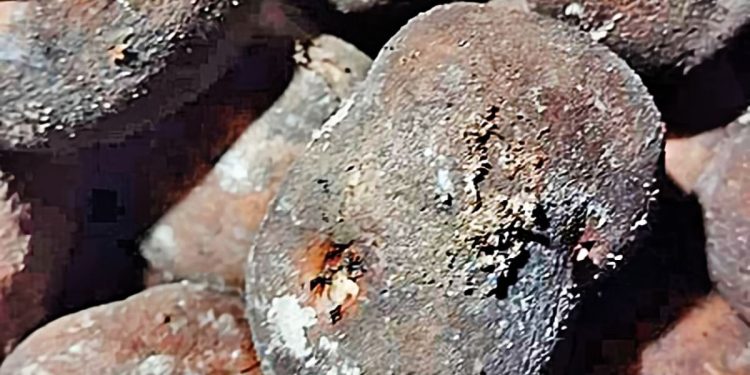#Agriculture #SmallholderFarmers #SeedPotatoContamination #ASMP #ImportIrregularities #EnvironmentalImpact #AgriculturalCrisis
In a devastating blow to Northern farmers heavily reliant on short-term crops like potatoes, chili, and red onions, the recent Agriculture Modernisation Project (ASMP) has encountered a major setback. Selvaskantharajah Thusyanthan, a seasoned vegetable farmer and head of the Potato Farmers Union in Jaffna, is among 300 beneficiaries grappling with the fallout of a contaminated consignment of 20 metric tonnes of imported seed potatoes.
For Thusyanthan and many others, this season’s plans for potato cultivation were disrupted due to the unavailability of healthy seed potatoes. The imported consignment, which arrived in jute bags instead of the usual cardboard boxes, was found to be infected with harmful bacteria, particularly Geotrichum spp, a fungus commonly found in potato-cultivating soil.
Despite the farmers’ diligent preparations, their hopes were dashed when they discovered that most of the seed potatoes were rotten and in poor condition. Subsequent pathological studies confirmed the contamination, leading to the decision to dispose of the entire consignment.
The Agriculture Department, in collaboration with the National Plant Quarantine Service, conducted investigations revealing fungal (Geotrichum spp) and bacterial (Pectobacterium carotovorum) infections. The poor storage conditions, contrary to recommended guidelines, contributed to a substantial level of infection, posing a threat to the environment.
ASMP Deputy Director Anura Wijetunga attributed the poor quality of seed potatoes to unpredictable weather patterns, with heavy rains affecting the region in recent weeks. The decision to dispose of the consignment was based on the reports submitted by inspection teams, aiming to prevent further environmental contamination.
In response to the crisis, a District Coordination Committee meeting chaired by Northern Province Governor P.S.M. Charles and Fisheries Minister Douglas Devanada called for quarantine certificates from the National Plant Quarantine Service. A committee was also appointed to investigate potential violations of quarantine regulations and irregularities in the procurement of the contaminated consignment.
Agriculture Minister Mahinda Amaraweera, informed about the condition of the seed potato consignments, instructed officials to investigate inadequate facilities and the losses incurred by the Government in the importation, maintenance, and disposal of the consignment.
The contaminated seed potato crisis underscores the vulnerability of smallholder farmers to external factors, including import irregularities and unpredictable weather patterns. Immediate actions are required to support farmers affected by this setback and prevent such occurrences in the future.







